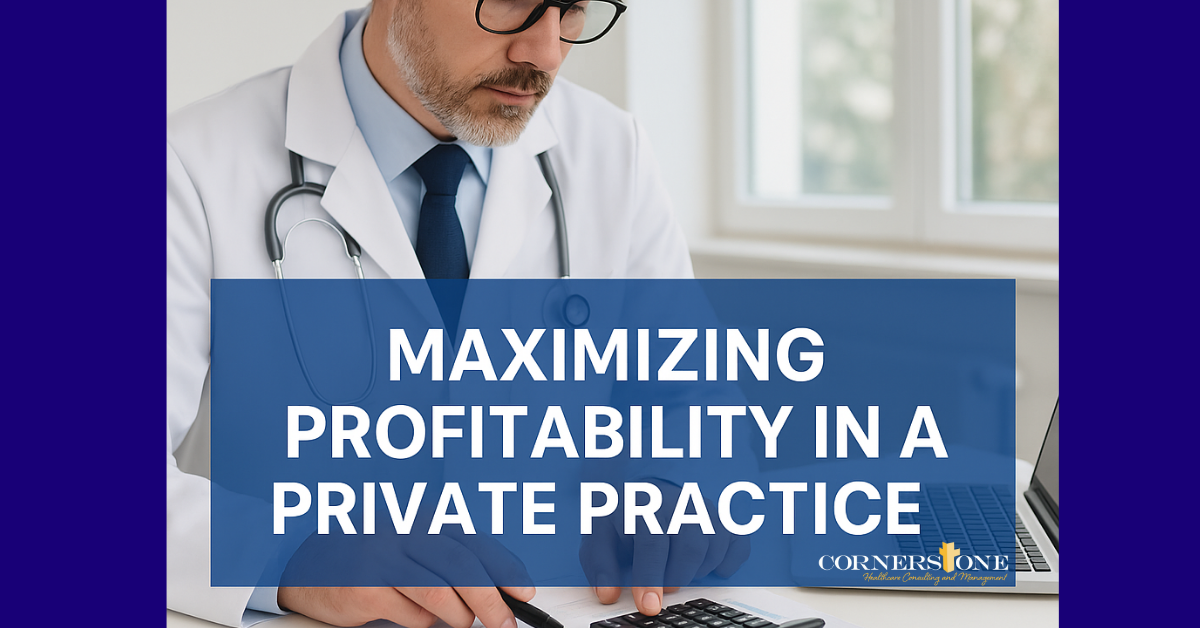
Melissa Starowitz
Life is definitely a journey. I always say I’m not who I was, but I’m not who I want to be. Starting out at the age of 28 on a career path as an independent owner of businesses, Melissa Starowitz has gone through every little mishap that can befall a start-up. Fortunately she was able to informally consult existing owners of successful businesses who guided her and encouraged her to look honestly at herself and her own business responsibilities. She describes herself, today, as a highly motivated and passionate individual, with a talent for analyzing problems and finding innovative solutions. What she has done is to transform the domain of Urgent Care, whether run by a single physician or a team of doctors. She has, through her own consulting company, opened multiple healthcare practices, with an ownership in multiple urgent care centers. Today, she can take pride in being a versatile, hand-on, multi-tasker. In her own words: “I have worn many hats… accounting, billing/credentialing, marketing, EMR support, etc. Although my background is heavily in healthcare, I also have extensive experience in assisting small business startups, helping them to lay the right foundation, positioning them for success.” She has thus far developed domain-specific expertise in startups, business development, strategic planning, operations and networking. Check out more interviews with entrepreneurs here.
Let’s learn a little about you and really get to experience what makes us tick – starting at our beginnings. Where did your story begin?
Melissa Starowitz: My story actually began in the urgent care market. I had done some healthcare consulting prior to that, but then, with my business partner, we decided that urgent care just kind of makes good sense. It was an area that a lot of other health care entrepreneurs were looking at. So at that point, we opened an urgent care outlet for the Philadelphia region and New York State. Then he and I separated amicably and I took over one of them, remaining in urgent care for a little bit longer. And then I actually went back into the healthcare consulting and contract management industry and just really focused on private practice and helped solo physicians to be sustainable and successful.
Tell us a little bit about your current projects. What exciting milestone you’d like to share with our readers? (Don’t hesitate to delve into your achievements, they will inspire the audience)
Melissa Starowitz: Although my company can offer a number of healthcare consulting services, a couple of the niche areas we’ve developed are actually opening practices and turnaround consulting. There’s been a large presence of health care systems taking over private practices throughout the country. And it hasn’t really gone well, at least for those physicians that have sold out or their staff for that matter. So, physicians realize that maybe they’re not doing everything right, they won’t be sustainable if they don’t change, but they don’t want to sell, can reach out to my company and we can go in and assist them with those needed changes. What makes us different is that unlike other consultants, we’ll go in and identify the issues, provide a report with recommendations and actually execute those recommendations. That makes sense. I mean, physicians with those practices wouldn’t be in that position if they had the ability to execute those changes. We had one practice within the last couple of years for which we actually saved about $260,000 of their annual expenses. So you can see the difference that that makes and how that can really improve their sustainability. And now I’m really focusing on targeting resident physicians because with the Gen Z population, who are very entrepreneurial, I don’t see them going into an employed position with the health system and being satisfied. So I really want to inspire them to explore private practice but not the way it’s been done for the last 30 years. We have a much more entrepreneurial view, we are more focused on customer service. We do it in a way that they don’t have to worry about selling to a system, you know, in 10, 20, 30 years from now.
Can you tell us a story about the hard times that you faced when you first started your journey? Did you ever consider giving up?
Melissa Starowitz: I think what a shame it is, we often highlight the end results of a successful business owner. It’s not often that you get to talk to them about the incredibly hard climb to get where they have gotten.
I would say that in just a relatively short amount of time, just within a few years, I had experienced just about anything and everything that could go wrong including leasing property that had over two million dollars in judgments against it. I didn’t know that obviously, when I had initially discovered the property. I had to figure out how to save it or I would lose my business. I had attempted to save the property. I initially succeeded. but then I realised that actually part of the property was occupied by the previous owner. I had evicted him in my legal right.
He then sued me and it was just a series of nightmares on top of the ones already existing. In the meantime, I’d also become a single parent. My son was three just shy of four years old, when that happened. So literally my world was falling apart around me. It’s interesting, you know, God has a way of kind of pushing us to the path that we’re supposed to be on., I had every reason and I absolutely wanted to give up. But I now consider it a great blessing and responsibility of helping practices in broken situations. So if I hadn’t gone through all that, I wouldn’t be as effective and as sincere as I am with them now.
Can you share a story about the funniest mistake you made when you were first starting? Can you tell us what lessons you learned from that?
Melissa Starowitz: Well, the story isn’t exactly funny. Or maybe it is, because it’s so naive and foolish. But when I first began, I actually opened my first Urgent Care before the age of 28. So, I was pretty young. Young, female and had this terrible misconception that I was just supposed to know everything. And when I had to admit that it felt like I was a failure.
I made a lot of mistakes because of that but I could have spared myself if I didn’t have that ignorant logic.Luckily I came to know some older and wise business owners, who admitted that they had had mentors. Somebody with that mindset, would probably be shocked because they were so successful. But that was the whole point you see? That was part of why they were successful. They weren’t afraid to talk about what they were facing with others and how to get through difficult circumstances
Resilience is critical in critical times like the ones we are going through now. How would you define resilience?
Melissa Starowitz: I definitely faced some really unusually hard times in my life and the thing about that is it really transformed me into who I am now and where I hope to be in the future.
Life is definitely a journey. I always say I’m not who I was, but I’m not who I want to be. So I think resilience is definitely persevering through trials, but it’s also persevering in becoming a better version of yourself and just, keep putting one step in front of the other and keeping a positive attitude that things are always better ahead than what was behind
In your opinion, what makes your company stand out from the competition?
Melissa Starowitz: One of the things that really makes my consulting company different is the fact that in other consulting organizations, they will go in and they’ll identify problems and provide a report on recommendations and then they walk away. What makes me different is, then I’ll stay and execute those problems on behalf of that health care organization.
Delegating is part of being a great leader, but what have you found helpful to get your managers to become valiant leaders as well?
Melissa Starowitz: I think of a leadership trait that has always been important and has become increasingly important over the last year, is the ability to accept change. Oftentimes when I’ve gone into physician practice situations to help turn them around, one of the struggles, one of the hindrances that they have is as accepting change, you know, they might have been stuck in the past and they were content and complacent, but their business obviously was neglected and now is struggling because of it. So absolutely, I can’t say enough good about the need to be able to adapt, to change, to be able to be successful and continue to be successful into the future.
Being a CEO of the company, do you think that your personal brand reflects your company’s values?
Melissa Starowitz: Yes. Absolutely. I do think my personal brand reflects my company’s values. Personally, I’m very relational and I have strong moral values. I believe in honesty, integrity, and just outright good character. Some of these great morals have kind of been tossed by the wayside, unfortunately nowadays and I think more than ever that it’s important to hold them.
And doing business – you’ll see though that I absolutely have instituted those values into my company. As a company we operate, very relationally. I regularly work with other organizations when assisting clients and also become very personal in some ways with my clients, developing friendships because of this relational style of doing business. And they quickly pick up on the fact I am honest and value what is ethical. And if anything were to go outside of those lines, then I would have to recuse myself whether it’s personally or as a company.
What’s your favorite leadership style and why?
Melissa Starowitz: You know, I would say I actually think each style of leadership is valuable depending on each situation and what that situation is necessitating. Sometimes you need an authoritative style of leadership depending on that situation. And then sometimes you can go to the next extreme of laissez-faire. As far as my favorite though, I would say, I would float between a democratic and laissez-faire style of leadership. I think it’s important that a leader is hands-on. So that Democratic style and just being invested in their staff. But I think sometimes laissez-faire is important as well, so that their staff has some autonomy to do the things that they need to do and they don’t feel micromanaged. I think it’s important to kind of be in between and have a balance.
What advice would you give to our younger readers that want to become entrepreneurs?
Melissa Starowitz: I would definitely encourage anyone that wants to become an entrepreneur. I do think though that the word is overused and/or misused nowadays. I think that the concept of being an entrepreneur is not always what it’s portrayed as. So, for example, somebody likes baking, so they decide to open a bake shop. That’s more of a hobby that doesn’t necessarily make you an entrepreneur. My advice would be that don’t be afraid to fail. Many of the most successful entrepreneurs, absolutely failed and failed miserably more than once. One of the greatest examples, always thinking about seems silly, but Colonel Sanders, with Kentucky Fried Chicken. I mean, he actually did fail multiple times and miserably, but he never gave up. So, that’s a big, big piece of advice. You have to persevere, you have to keep going. And also many entrepreneurs will tell you that we’ve tried a number of things that maybe they did, maybe they didn’t make sense, but that’s how you also get to where you’re supposed to be. So, maybe it makes sense for somebody else, but not for you, but it helps you have a better understanding of who you are and what you’re good at, what you’re not good at. Don’t be afraid to fail. Don’t be afraid to keep trying. Work Hard. There’s not many overnight successes. I know that that’s often portrayed, but that’s not the case. You have to be consistent, keep putting the work in.
What’s your favorite “life lesson” quote and how has it affected your life?
Melissa Starowitz: All of my life lesson quotes really actually come from the Bible. You have a number of verses that I think about in different situations, but two verses that I regularly use and just contemplate. Our one is from Philippians 4:13, which is I can do all things through Christ who gives me strength. Sometimes, we just need encouragement and maybe we’re just having a rough day and you need a good reminder of that.
The other one is from Proverbs 3: 5-6. It’s kind of like a standard business verse, really. And it just says to trust in the Lord, with all your heart and lean not on your own understanding, but to surrender your plans to him and he will make your plans straight. You know, I fell on some hard times when I thought I could do everything in my own strength, my own control. And so it wasn’t until I was able to surrender to him and accept the fact that I couldn’t do everything in my own strength and I didn’t have control over everything then things started to get better. So I rather regularly seek wisdom from the Lord and absolutely look to contemplate what his will is for me and not just run off doing anything and everything that I want.
Mike Weiss, VIP Contributor to ValiantCEO and the host of this interview would like to thank Melissa for taking the time to do this interview and share her knowledge and experience with our readers.
If you would like to get in touch with Melissa or her company, you can do it through her website – cornerstonehealthcareconsulting.com
Disclaimer: The ValiantCEO Community welcomes voices from many spheres on our open platform. We publish pieces as written by outside contributors with a wide range of opinions, which don’t necessarily reflect our own. Community stories are not commissioned by our editorial team and must meet our guidelines prior to being published.







